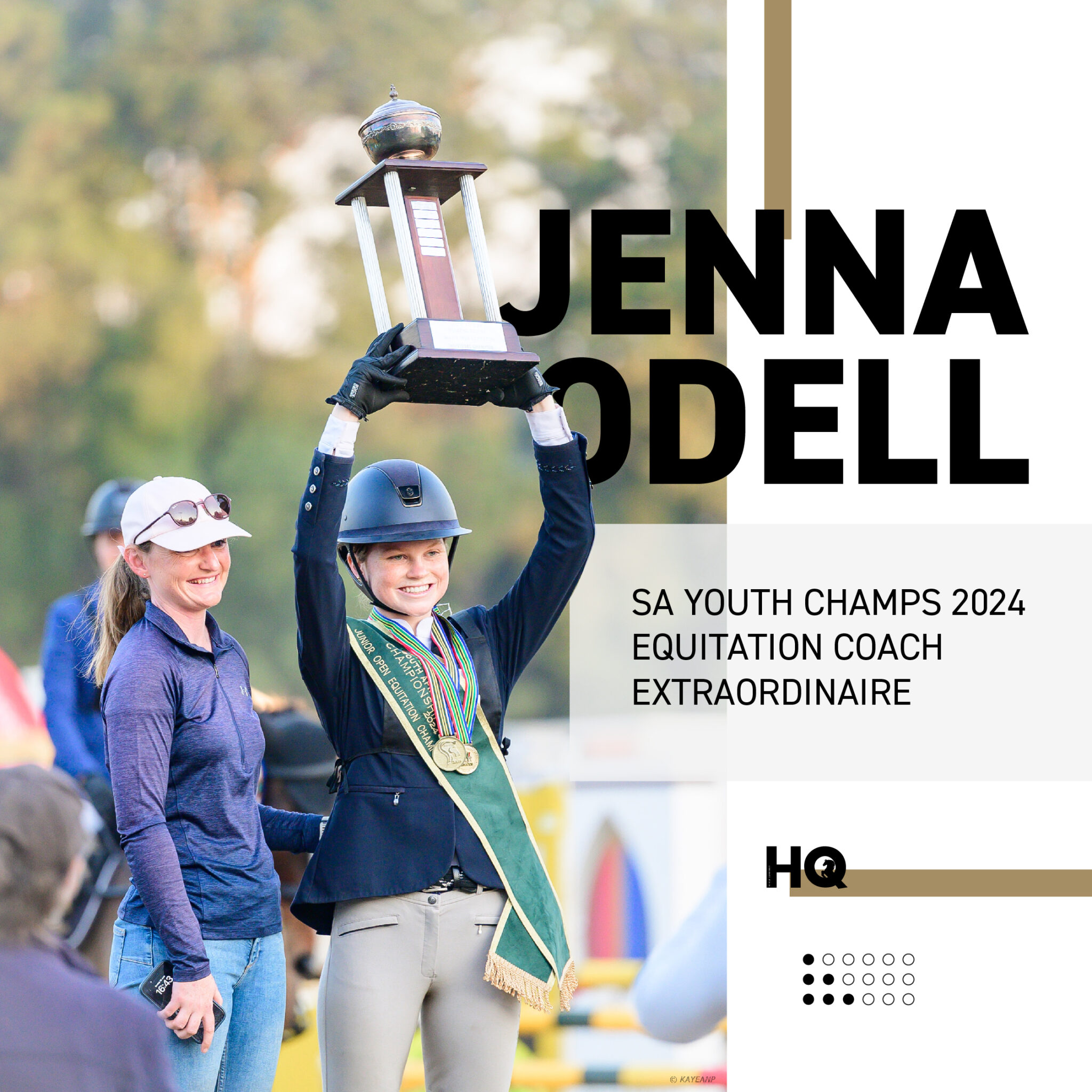Equitation in South Africa is one of the disciplines that gives the most recognition to the coach of the athlete, and rightly so! The primary goal of equitation has, from its inception, been to improve the standard of riding in South Africa, and it has most certainly achieved its goal, as we observe the standard of young riders who participated in this year’s SA National Junior Open Equitation Championships. 32 of the best junior riders from five provinces across South Africa challenged for the title. A gruelling day of competition saw the top eight proceed to ‘Part 3’, where they swopped horses, and finally, the top two riders progressed to ‘Part 4’, where they rode a ‘secret’ horse. What resulted was three podium-placing athletes who all hailed from KwaZulu Natal and, amazingly, were all coached by Jenna Odell!
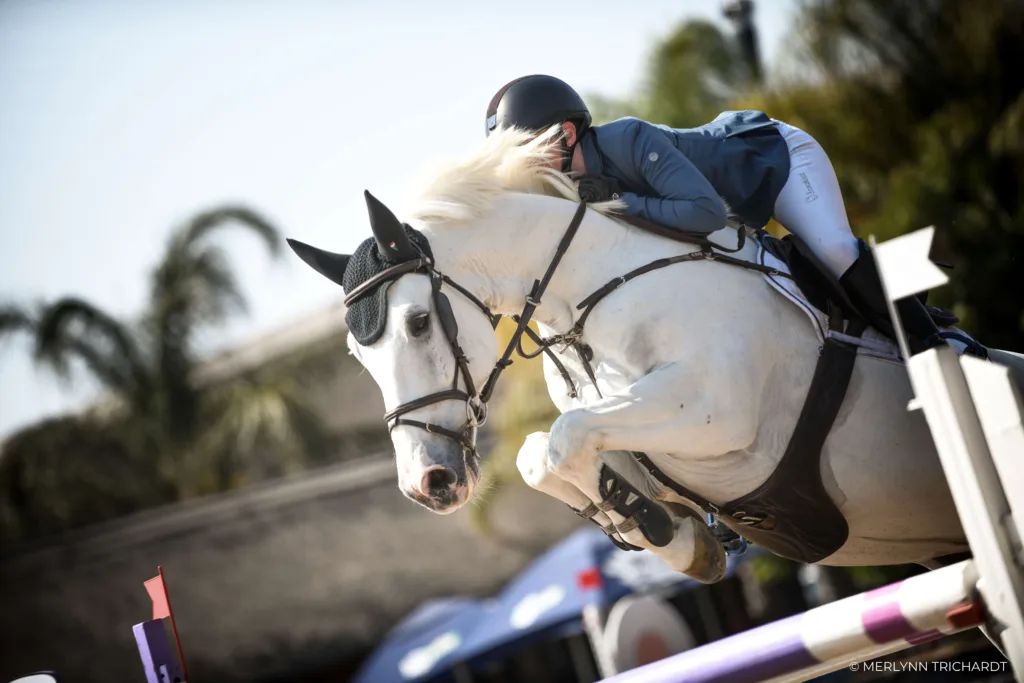
SA Equitation Junior Open Champs:
1st Alexandra Ric-Hansen (Callaho Laios)
2nd Hamza Minty (Erreplus Atoki)
3rd Olivia Roberts (Eagles Coastwatch)
We had a quick catch-up with Jenna after this great success to learn more about her and what factors contributed to her success as a coach at this year’s SA Champs!

HQ: Can you tell us a bit about yourself and your ‘horsey’ background?
Jenna: I started riding when I was seven or eight years old, but I’m not sure where that came from as neither of my parents are ‘horsey’. I just begged and begged them to take me for lessons, and I think in the end, they took me just to shut me up! But I fell in love with the sport, much to their dismay, and it snowballed from there. They were very supportive; we moved to an equestrian property, got some ponies, and eventually moved on to the horses.
I didn’t have much of a pony rider ‘career’ or very good ponies. Then, going into Juniors, I got a Thoroughbred off the track and a young Callaho that I had to produce myself to the bigger classes. By the time I got to matric, I was jumping in the 1.30m classes quite competitively, but I didn’t win any big Junior title classes.
When I left school, I took a gap year instead of going straight to varsity, and I work rode and started a little bit of coaching to earn some pocket money, but I was mostly riding and wanted to take that year to travel to some of the big shows and get a lot of experience riding for myself before going to varsity. When the time came to go to varsity, I decided I was going to do something that allowed me to stay where I was and keep up with the riding work and the teaching. I decided to do a degree through UNISA by correspondence and the riding work and teaching picked up from there. As the years have passed the riding work has decreased, and teaching has become my main priority.
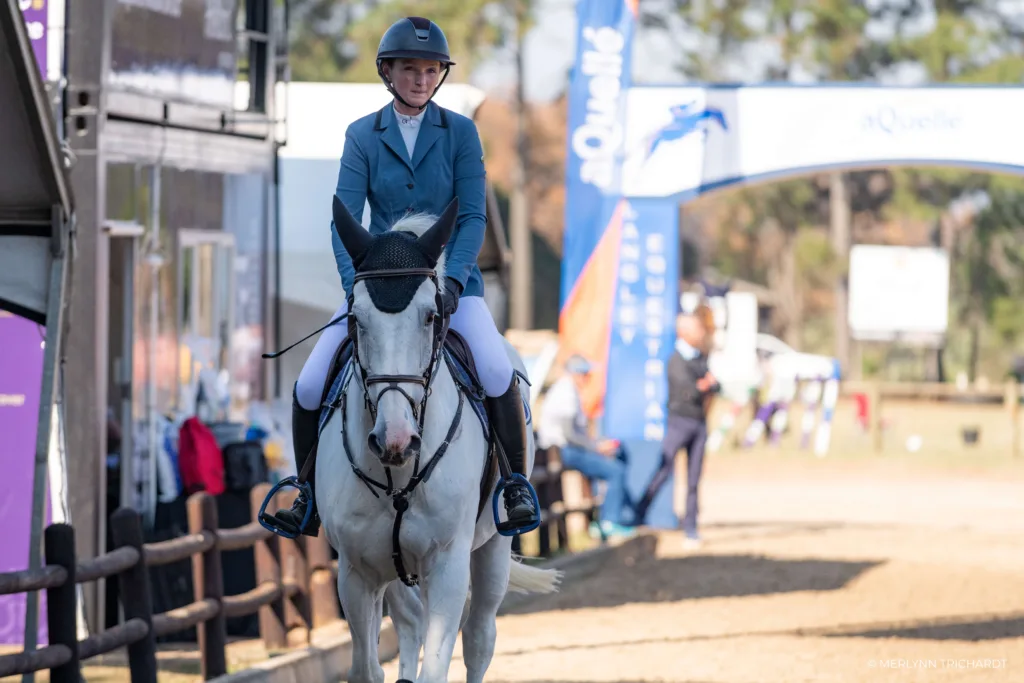
HQ: Can you tell us a bit about your top horses so far?
Jenna: My first really good horse was called Capital Contagion; we bought him from the Stud. We jumped up to the 1.35m/1.40m classes, and I eventually had to sell him to buy my next top horses, but he was very successful for me and very competitive.
I then had Park Pleasure, a big chestnut who jumped me up to the World Cups and was my first big league horse. He jumped me around my first open classes, first Grand Prixes, and World Cups; he was just amazing. He was a bit difficult with the water and a bit quirky, but he gave me a lot of exposure and experience around those big tracks.
I then had a horse called Figo, who was also a very big horse! He was super scopey and very brave. He also gave me a lot of experience and was quite a different type of horse.
Of my current horses, my best horse at the moment is Callaho Lord Cassini, who we bought off the Callaho auction in 2016, and is jumping his first year in the World Cup Qualifier Series. He is finding it pretty easy, which is an amazing feeling! He is very competitive, very quick, and not the easiest, but we have such a good relationship; I’m absolutely loving him!
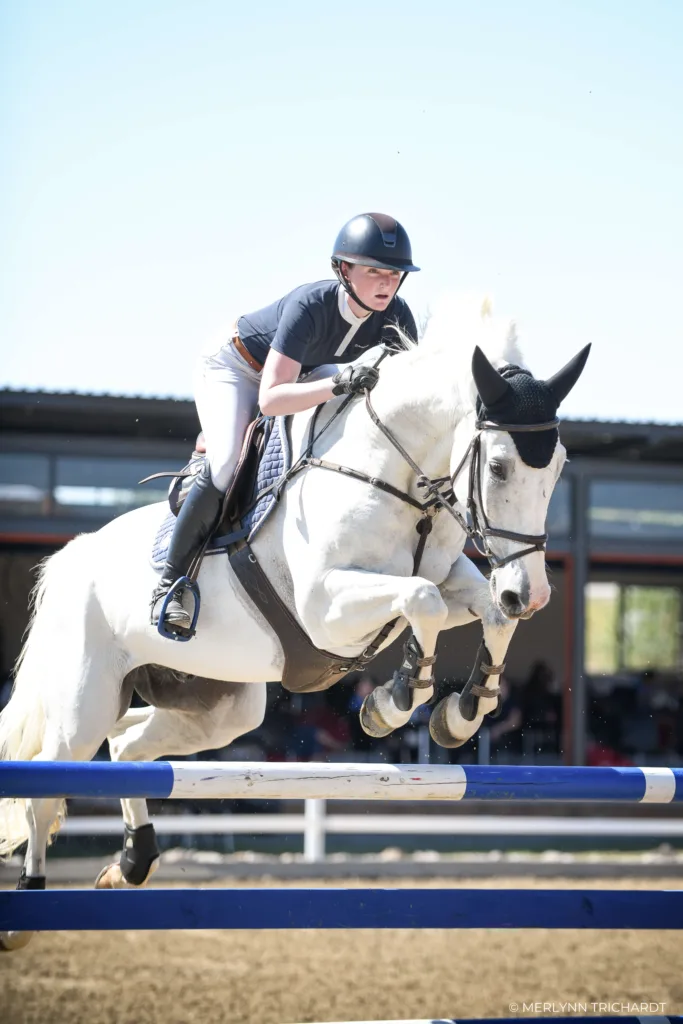
Did you know?
Lord Cassini was one of four Lord Z progeny sold on the 2016 Callaho Auction. Callaho Lord Cris (Lord Z x Contender) is a WCQ winner with George Coutlis, and his full sister, Callaho Lordana, jumped up to 1.20m with Zoe Morphis, and Callaho Lord Callan (Lord Z x Calando I) also jumped up to 1.20m with Kyle Venter.
HQ: What disciplines do you coach?
Jenna: I mainly coach showjumping, and the equitation falls in with that for the Juniors. I think equitation is a really good foundation and base for young riders to build upon. It teaches very correct and disciplined riding and that translates through to your effectiveness in showjumping.
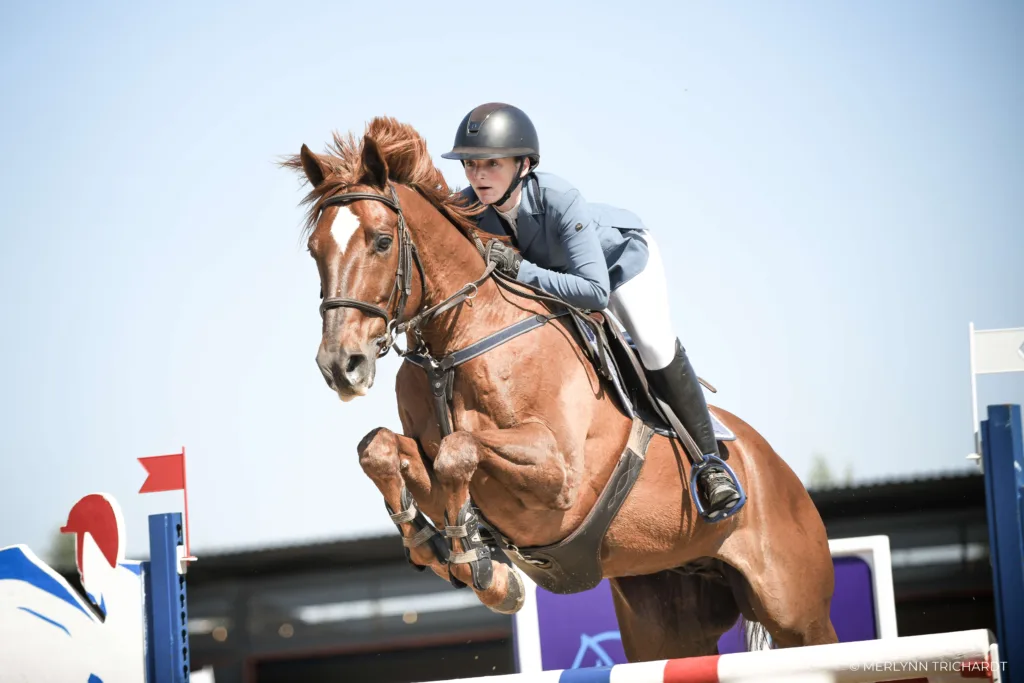
HQ: Could tell us a bit about your coaching philosophy?
Jenna: As a coach you have to be constantly learning! Any trainer or instructor will say that they are never quite up to speed; there is always something different, a slightly different or new way of doing things, and you can never stop learning. Personally, I love watching the warm-up arena and watching other people coach in the warm-up arena. Seeing their little tips and tricks and different ways of seeing and doing things is fascinating. I also watch a lot of lessons and tutorials with the best riders in the world online, and whenever we travel and go and watch international shows, I can pick up stuff there. So, it’s about constantly learning and adapting; if you run into a problem, talk to different people about it. There is always something new to learn, and you can always gain slightly different insights from everyone.
HQ: Could you give us your thoughts on this year’s Equitation Championship Class?
Jenna: This year’s Junior Open Equitation class was very, very strong; the strongest I have seen in a good few years. It was a big class with over thirty riders, and every rider rode a very good test. The scores were very high and competitive, and the level of riding was superb. You could see the degree of preparation that the riders and coaches went to for this event; it was a lovely class to watch.

HQ: How did you prepare your riders?
Jenna: In terms of preparation, our weekly riding is very disciplined, particular and meticulous, so we don’t have to change a whole lot when we prepare for the equitation. The foundations of equitation are instilled into us and into our riders daily. The riders are trained to ride very correctly and according to a structured plan. The main difference in preparation would be running through the tests; the kids need to know them. We don’t necessarily run through the whole test but rather run through elements of the test and the transitions between the movements. Another beneficial tool is getting the riders on a variety of different horses in preparation for Parts 3 and 4. It is very helpful for them to be able to get on new horses and be able to change and adapt to that horse’s way of going. Essentially learning how the new horse likes to go and adapting to get the best out of that horse.
HQ: What advice would you give to someone competing in a big equitation class?
Jenna: I think you have to stick with your plan. In Parts 1 and 2, you know your horse and their strengths and weaknesses, and you must plan your course to suit both you and your horse. Don’t watch how others have planned their test; stick to your guns, stick to your test, and know that is the best you are going to do. For Parts 3 and 4, I think you need to get on the swapped horse and ride him how he wants to go. I don’t think you can force it. We all have our own riding styles, but in this instance, you have to try to get the best out of that horse at that moment, and oftentimes, that means letting that horse go the way he wants to go.
HQ: Well, as you coach an outstanding 75% of riders qualified for the Philip Smith Memorial Championships this coming year, the odds are good for a winner for you! All the best and we will certainly follow this story!

